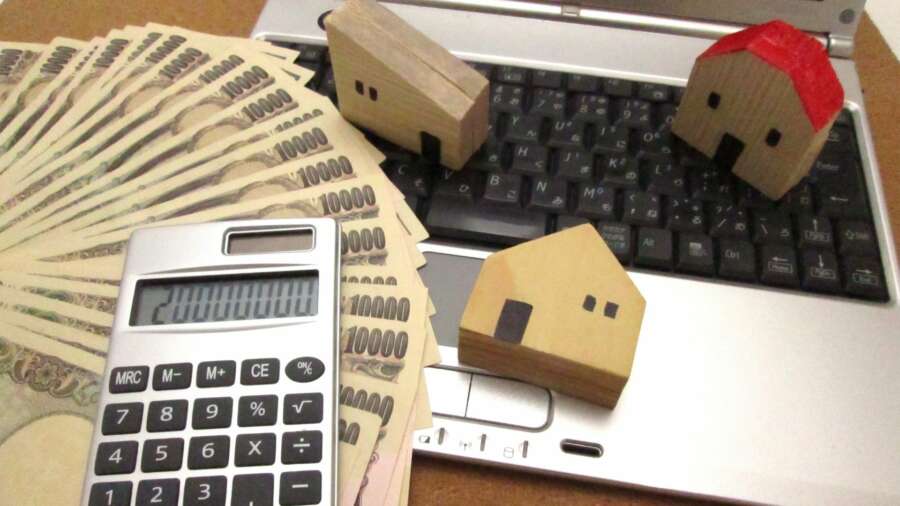
When you’re selling your house or flat it can be tempting to seek a high price so that you can make as much profit as possible. But if the price you’re asking is far out of the normal range for properties in your area, you might struggle to find buyers. There are some simple tips you can follow to figure out exactly how much to ask for when you sell your home.
Why the right sale price for your home can make all the difference
Deciding the perfect price for selling your house or flat could be compared to Goldilocks finding the right porridge in the three bears’ house; too high, too low, or just about right. If you set the price too high then you might end up turning off buyers who will take one look at the amount and not even look at your property listing – even if your home is a perfect fit for their needs. Too low and you might have to settle for selling at an amount far less than you could actually get.
Take your time to calculate your ideal sale price, and use the tips below to help. The right sale price will generate plenty of buyer interest whilst still living you satisfied.
Start by exploring prices for similar houses and flats in your area
A good first step you can take when trying to figure out the right price to ask for your house or flat is to check a property sales website like Zoopla. This site and others offer visitors a tool that helps you get a fast estimate of how much your home might be worth, although be cautious and know that these are only rough price guidelines.
To use the tool, simply enter your postcode and look up your specific address. Property websites will then give you a predicted asking price, typically in a range (for example £150,000 to £200,000 with a specific estimate of £175,000). Most results will also compare that specific estimate on whether it’s higher or lower than the last sale price the house received.
The reason to be cautious with such estimates is that the tool works by crunching data from a wide range of sources about your house and the surrounding area, including prior home sale prices, and that some of this information can be quite out of date. It might not reflect significant changes in the location that can vastly affect the sale price you’ll be able to get. But as a general starting point, a website estimate can be somewhat helpful.
Estimate the value of improvements, and negative elements, at your home
Because a website estimate tool uses historical data to calculate a predicted sale price for your home, it isn’t able to consider the impact of changes you’ve made to the property.
That’s why, after getting an estimate from a property website, you need to take time to assess all the improvements that you’ve made to your house or flat. This covers a wide range of work, including fitting a new bathroom or kitchen, building an extension, taking corrective action for a structural problem, or any other projects that have enhanced the property. Assess how much you’ve spent on these and add that to your eventual asking price.
But you also need to do an honest assessment of any negative elements about your property that a website estimate won’t be able to catch. For example, if you recently discovered the presence of the invasive species Japanese knotweed then that is a potentially costly negative factor you might have to subtract from the asking price if you don’t plan on fixing it before selling. You must notify buyers of any such problems and if they will have to pay for corrective measures they will want to discount this amount from the final sale price.
Ask the experts for their input to help refine your price
You can further refine your sale price by asking estate agents, speaking with the fast property buying team at LDN Properties, and other experts involved with selling houses and flats to see if they’ll give you a free estimate for how much your home is worth.
Note that some estate agents might quote you an artificially high sale price that’s above what you could reasonably be able to secure. This is another step where you need to use your best judgement and not simply jump at the very first estimate someone gives you.
Consider your priorities for moving and adjust the sale price accordingly
One last important factor to consider when setting your home sale price is your specific needs for selling. If you want a fast sale because you have to move quickly or there’s a pressing need to raise major funds, then you might want to set the sale price slightly lower than the average home value in your neighbourhood in order to generate more interest from prospective buyers. The lower the price, generally the more people you will have interested in buying your home.
But if you are not in a hurry to sell and would like to maximise your profit, you could start the selling process by setting the price a little higher than average homes in your area. Not only do you get to make a nice profit if you sell, but you can also test in the real world how much your sale price either interests or deters buyers. This allows you to adjust it downward accordingly if the initial asking price fails to generate much interest in the property market.
This is a Sponsored Feature.


